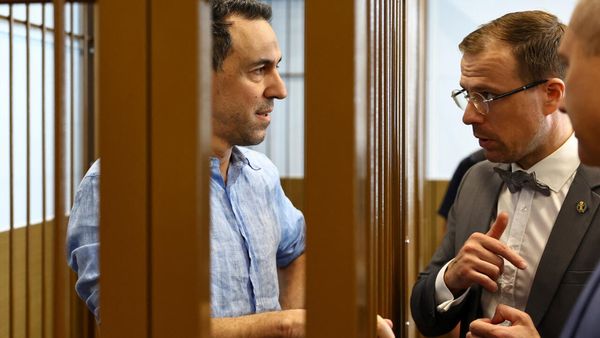
The question My man died of cancer five years ago. He was 61. We had children and grandchildren. He had been “the man of my life” for the last 35 years. We were in love. Each day, each night, we told each other how we were feeling good together. Our life was just as we wished it could be. We had a small country house where he was living full-time since he retired and, as I was still working, I came back home from my work every Friday night for the weekend. We were like two lovebirds meeting again.
You can imagine how painful it was to lose him. Each day during the years after his death, everything made me think of him: music, snow, sun, rain, food, films… It was very hard to sell our house. But I had to do it and I did. I am having to rebuild my life brick by brick, but it feels as if joy will never come back.
I never met a man who would be able to take his place. It is too hard to throw away pictures of him or letters he wrote me, I am holding on to some of his clothes still. I know I must let go, but I feel as if I would be betraying him if I did. Because of this, I feel that my life (particularly my love life) is in limbo. I’m not really living. How can I let him go? How can I be free again? How can I live again?
Philippa’s answer Philippe Ariès wrote in Western Attitudes Toward Death from the Middle Ages to the Present: “A single person is missing for you and the whole world is empty. But one no longer has the right to say so aloud.” There is a pressure somehow, that after a year we “should” let go of grief. I would argue, though, that you had a wonderful relationship, so why would you ever want to let go of it? It’s painful to be without him and you must miss him very much. Rather than letting him go, you could create a special space or shrine in your home where you can display your husband’s things and remember the good times you shared. This can be a place where you can go to feel close to him whenever you need to. You might want it private just for you in a cabinet, or something you share with your children, who might want to add to the shrine, too.
When someone we are close to dies, we don’t only lose them, but we also lose the person we were when we were with them. It’s like you’re missing a part of yourself. How we experience ourselves differs with every person we are with and every group we belong to. In time you will feel good with other people, not in the same way you felt with your late partner, but different people will bring out different aspects of you that you will come to like or even enjoy, and you will get better at living differently.
You have had the life you had with your partner and now it is time to have another life. Think of it as having more than one life. You might not love it as much as you loved your old life with him but, in time, you will become more accustomed to this new life and appreciate different parts of it. You could also see people again romantically if you want to experiment. Don’t compare them to your late husband, they will be different. And he won’t be betrayed. Think of him cheering you on, wanting you to make the most of your life. There is no timeline for grief and there is no point in trying to rush it. It’s possible to honour your husband’s memory while also finding new love and happiness in life.
Enjoy remembering fondly how he responded to music, snow, sun, rain, food and films and enjoy these things anew. Talk of him with your children and friends, too, and I hope, eventually, the memories will become a source of comfort more than pain.
He’ll be a part of you always, but you can also grow new parts, some of them in solitude and some in relationships with friends, and possibly new friends – even, perhaps, new lovers. These new parts of you will grow around your grief, around the part of you that is missing. Grieving is hard and I’m not sure it is ever over, but you can continue to develop and grow around it. I’m sorry it feels so painful.
I hope it is some comfort to realise that by surviving him, you have spared him the pain of being without you. You have spared him the grief you are now feeling.
There are some beautiful books about grief. For example, Grief Works by Julia Samuel, You Are Not Alone by Cariad Lloyd, The Madness of Grief: A Memoir of Love and Loss by Richard Coles and Grief Is the Thing With Feathers by Max Porter. Reading about how other people are with their grief may help you find a way of being with yours.
Life will never be the same as it was, but that doesn’t mean it won’t ever be exciting, fun and beautiful again. You are right, no one will ever take your husband’s place, but that doesn’t mean you will not create new places in your life that will bring you different gifts.
If you have a question, send an email to askphilippa@observer.co.uk
Submissions are subject to our terms and conditions
To explore all the books recommended by Philippa Perry visit guardianbookshop.com Delivery charges may apply.







